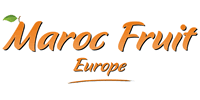
According to Hicham, the prospects for the Clementine season are really good. "Berkane has been named the capitol of the Clementine. Our Clementines have a deep orange colour and the flavour is incomparable to other Maroc-Clementines. Buyers come back to us, purely due to the flavour and quality of our product." The exporter reports that the production in Agadir, the other Clementine region, is around 30 to 40% lower which can result in extra demand for the Berkane-Clementines. The production is higher than last year in Berkane, however, as mentioned earlier, the demand is a lot higher than last year."
The first containers were sent to Russia last week and the export to Europe will begin this week. "Russian buyers want to have the first batch of Clementine's earlier than their neighbours, even if the flavour is not yet at the right level. The flavour and colour will be at a good level for the European market," says Hicham.
Packing centres have merged
"Most of the packing centres merged into one group over the last year in Berkane. This group is responsible for the sale and logistics for diverse markets such as Russia and Canada. Due to the fact that the packing centres are now working together, it is easier to develop programmes with diverse buyers such as large retailers. There are buyers from different countries who load 3,000 to 3,500 tonnes per week. Berkane has been working more and more on optimising the quality of the packing centres and plantations in the last few years. Thousands of hectares have been planted with Clementine trees in the last 4/5 years."
Maroc Fruit Europe supplies Clementines to buyers in the Netherlands, France and Belgium but has also been increasingly exporting directly from Morocco and other destinations. "A country like Russia buys large volumes and sizes that are difficult to sell in Europe." concludes the exporter.





